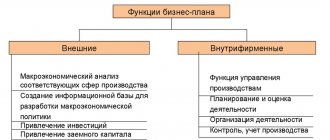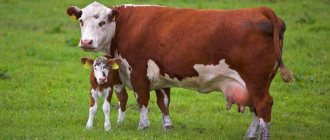What is a peasant farm and what is the difference from an individual entrepreneur?
A peasant farm is a peasant farm, regulated by clause 5 of Art. 23 of the Civil Code of the Russian Federation and the Federal Law “On peasant (farm) farming” dated June 11, 2003 No. 74-FZ. It is one of the forms of entrepreneurial activity in the Russian Federation. At its core, it is an association of citizens (Russian Federation, foreign, stateless persons) who are relatives or related by property (up to 5 non-relatives are allowed). These persons must own a plot of land, which results in joint agricultural activities (production, processing, storage and sale of agricultural products). Absolutely any activity (within agriculture), not necessarily all its types, but, importantly, all members of the peasant farm should be engaged in it. Members must be 16 years of age or older. Their number is not limited.
From here you can see an important difference from an individual entrepreneur - an individual entrepreneur can hire hired workers and not work himself, but everyone works here, although hired workers can also be hired.
Another difference is that the individual entrepreneur is individual. Peasant farms are often group (although you can register for one person). Moreover, both of these forms of doing business do not imply the formation of a legal entity.
The individual entrepreneur is liable with all his property for his obligations. Members of peasant farms bear subsidiary liability within the limits of the property that is specified in the agreement when creating the peasant farm. In other words, a peasant farm is a kind of entity like an LLC, but “tailored” for agriculture, and is not a legal entity.
How to register a peasant farm in 2020: step-by-step instructions
The activities of farms in Russia are regulated by Law No. 74 - Federal Law “On Peasant Farms”.
Federal government structures, bodies of constituent entities of the Russian Federation, local self-government bodies must exert every possible influence on farming as a small entrepreneurial business (Article 2 No. 74 - Federal Law):
- contribute to the formation of an economic and social base;
- provide access to finance and other resources.
At the same time, the above-mentioned authorities do not have the right to interfere in the activities of peasant farms (except for cases listed by law).
Who has the right to open a farm
The right to open a CFC is available to:
- for all capable citizens of the Russian Federation;
- stateless persons;
- foreign citizens (Article 3 No. 74 - Federal Law).
You can create a farm:
- spouses and close relatives (parents, children, grandchildren, grandparents, brothers and sisters of both spouses) - from no more than 3 families in total;
- The age of family KFK members is at least 16 years.
Agreement on the formation of peasant farms
If there is more than one person in the farm, they must enter into an agreement among themselves (Article 4 No. 74 - Federal Law):
- about all participants in the economy;
- their rights and responsibilities;
- appointment of the head of the peasant farm and his powers;
- creation of common property, use and disposal of it;
- rules for admitting new members and leaving membership;
- copies of documents confirming family ties;
- other conditions (at the request of peasant farm members).
The agreement is signed by all members of the peasant farm.
How to register a peasant farm
State registration of peasant farms takes place on the basis of the legislation of the Russian Federation (Article 5). Peasant farms are usually registered as individual entrepreneurship (IP), unless its members decide otherwise.
The elected head of the farm submits the following documents to the local tax authority:
- application in form P21002;
- agreement on the creation of a farm;
- passport of the manager (head) of the peasant farm;
- TIN of the head of the peasant farm;
- receipt of payment of state duty in the amount of 800 rubles;
- an application to the tax authority about the chosen method of taxation (if it is not available, taxes will be levied according to the general standard (GST).
Peasant farm property
The joint property of the farm is:
- a plot of land with outbuildings and other buildings;
- land reclamation structures and others;
- fruits, vegetables, livestock and (or) poultry;
- vehicles and equipment necessary for agricultural activities;
- manufactured products (for example, dairy products) and income from their sales.
The list of joint property, as well as the distribution of shares in property, is established by decision of the members of the farm. General ownership and use of property in the interests of the farm is defined in Art. 7 - 8 No. 74 - Federal Law.
The division of peasant farm property is regulated by Art. 9, from which it is clear:
- the exit of an individual citizen does not entail the division of land and means of production (transport, structures and equipment);
- the member of the farm who leaves is paid monetary compensation in accordance with his share in the total property, within the time limits adopted by mutual agreement or court decision (but no later than one year from the moment the participant leaves);
- for two years after leaving, the person continues to bear subsidiary liability (within the limits of his share) for the assumed obligations of the peasant farm, existing before the day the person left the farm association.
The complete division of peasant farm property occurs only after the organization officially ceases its activities.
Inheritance of property occurs according to the Civil Code of the Russian Federation (Articles 253, 254, 255, 257, 258 and 259) and is regulated by Art. 1179 Civil Code.
Land for farming
The work of peasant farms is possible only on agricultural lands, but it is also possible to build buildings and structures that may be needed for work on lands of other categories.
- The distribution of land plots is based on the land code. To obtain permission to purchase or lease land plots, you need to contact local governing bodies or executive government agencies in charge of the land.
- If the allocation of a land plot is refused, applicants may go to court.
- At the legislative level of the constituent entities of the Russian Federation, the maximum and minimum sizes of land plots are established, except for lands allocated for gardening, winemaking, vegetable growing, beekeeping, fish farming, seed farming and other activities (minimum sizes are not established for these lands) (Article 12 No. 74 - Federal Law) .
If agricultural land that was in shared ownership was privatized, then the participant in the shared agreement has the right to demand that he be provided with a land plot against his share (Article 13).
Peasant farm members: admission, exit, rights and responsibilities
Admission to the association occurs on the basis of mutual consent of its members. When entering or leaving a farm, a person writes a statement (Article 14).
- Rights and obligations of members, according to Art. 15, are established by mutual agreement, depending on the qualifications of the person and the needs of the farm itself.
- Each person included in a peasant farm has the right to receive a portion of income, expressed in cash or in kind (that is, you can receive your personal income, by decision of the association, in the form of manufactured products).
- The peasant farm, at its own discretion, chooses the head, that is, a leader who will be competent in management issues and will be able to defend, if necessary, the infringed rights and interests of the association (Article 16).
- If there is only one person in a farm, he is also the head of the peasant farm.
The powers of the head are:
- the head of the peasant farm will organize the activities of the farm;
- act on behalf of the association;
- hire and fire employees;
- issue powers of attorney;
- carry out transactions, etc. (the list of powers of the head of a peasant farm is contained in Article 17 of this Federal Law).
The election of another head of the farm is carried out on the basis of Art. 4 of this Federal Law, if the current head does not manage the farm (for various reasons) for more than six months or has died. A change of head does not mean his exclusion from the members of the peasant farm, therefore his rights and obligations as a participant in the farmers’ association are preserved.
Let us now consider how the legislation defines the activities of farms.
What do farms do?
The main activities of peasant farms are defined in Article 19 No. 74 - Federal Law and are established by members of the farm:
- main production: for example, growing agricultural crops (cereals, potatoes, sunflowers, beets, etc.), fruit-bearing trees, vegetables, raising livestock (birds), etc.;
- secondary processing of products (production of flour, oils, juices, dairy products, etc.);
- storage of manufactured or processed products: (in granaries, vegetable warehouses, barns, warehouses, etc.);
- transportation of products and other types of transportation for own needs: agricultural machinery, equipment, spare parts; fuels and lubricants; agricultural raw materials and feed; seeds and fertilizers, etc.
Merger of several peasant farms and termination of activities
Several farms can merge into one large farm to improve business coordination, increase its efficiency and profitability, and protect common rights and interests. Association is possible both on a territorial basis and on a sectoral basis (Article 20).
Liquidation of peasant farms occurs in the following cases (Article 21):
- by mutual agreement of the members of the farmers' association (the unanimous decision must be recorded);
- the complete departure of all members and the absence of heirs who have expressed a desire to engage in farming;
- bankruptcy of peasant farms;
- reorganization of a peasant farm into a partnership or consumer cooperative.
Termination of the activities of a farm takes place within the framework of the Civil Code of the Russian Federation.
Registration of peasant farms as a legal entity
In Art. 86.1 of the Civil Code of the Russian Federation, a farm-legal entity is recognized as a voluntary association of citizens for the purpose of conducting common economic or production activities.
Please note that the association is not based on family ties, but on ordinary membership, that is, any group of people can create a farm with the help of:
- protocol decision;
- constituent document;
- entry into the state register of legal entities (USRLE);
- payment of state duty in the amount of 4000 rubles.
The differences between a peasant farm of a legal entity and a simple farm are also:
- availability of authorized capital in a minimum amount of 10 thousand rubles;
- presence of a legal (postal) address;
- impossibility of inheriting property of a legal entity;
- another application form (universal application form for registration of a legal entity - P11001).
Re-registration of a peasant farm established as a legal entity may not take place until 2021.
When creating a farm, you need to remember:
- A citizen can have membership in only one peasant farm.
- Upon collection by creditors, the land plot will be sold at auction.
- All members of the peasant farm share equally not only the fruits of production, that is, income, but also debts, which meets the principles of subsidiary liability.
What is the price
The question about the cost of a peasant farm should be divided into two sub-questions: How much does it cost to register a peasant farm, and how much does it cost to open a peasant farm “from scratch”.
Let’s dwell on the question “how much does it cost to register”:
- state registration fee 800 rub.
- Certificate from a notary, form P21002 - 1500 rub.
- Notarized power of attorney from 2000 rub.
- Notarized copy of the applicant's passport within 1000 rubles.
Notary costs are required if the applicant will not submit the documents himself.
How much does it take to open a business?
The costs of opening a peasant farm depend on the type of activity. To raise pigs you will need:
- Sows – from 10,000 rubles. Per head.
- Feed – 1.4 tons of mixed vegetables and 500 kg of mixed feed. 20,000 rub.
- Veterinary medicines – from 1500 rubles.
- Other expenses - from 5000 rubles.
In total you need from 36,500 rubles. for raising one sow. The activity becomes profitable when growing more than 10 animals. You can get from 500,000 net profit per year.
What documents are required
To register a peasant farm, you must submit the following documents to the registration authority at the place of residence of the head of the peasant farm:
- Agreement on the creation of a peasant (farm) enterprise (necessary if the enterprise consists of two or more members);
- Application for state registration of a peasant (farm) enterprise in the form P21002;
- A copy of the main identification document of the head of the peasant farm (passport);
- Receipt for payment of state duty (800 rubles);
- Notification of transition to a special tax regime.
It is also recommended to submit copies of documents confirming the relationship between members of the peasant farm.
Which tax system to choose
Simultaneously with submitting documents for registration, you should write an application for the transition to the single agricultural tax (USAT). This tax regime will relieve you from paying income tax, property tax and VAT. Unified agricultural tax is one of the most “humane” tax regimes, according to which the farmer pays a tax of only 6% of profit. Tax payment occurs every six months, and reporting under the Unified Agricultural Tax is submitted once a year.
Types of activities of peasant farms
In the OKVED classifier for agriculture, almost the entire section A is allocated.
Subsection 01.1 - annual plant crops, example 01.11.16 - growing buckwheat.
Subsection 01.2 - perennial plant crops, example 01.27.1 - growing tea.
Subsection 01.3 - growing seedlings, there is one example here, 01.30, the name is the same.
Subsection 01.4 - animal husbandry, example 01.41.12 - breeding of pedigree dairy cattle.
Within these subsections, select the types of activities (at least 4 characters) that you intend to engage in.
Do I need permission to open a peasant farm?
The opening of a peasant farm is regulated by the legislator. Every citizen of Russia can become a farmer. Its registration is similar to registration of an individual entrepreneur: an agreement on the creation of a farming enterprise, an application, a copy of the passport and a receipt for payment of the state duty are submitted to the Federal Tax Service. No special permits are required to open a peasant farm. If you want to earn money for your home and get a mortgage on favorable terms, read the free book “How to get a profitable mortgage.” A few steps that you will need to take will help you purchase an apartment profitably. More business ideas for farmers:
- Growing Chinese cabbage
- Growing camelina
- Growing potatoes using Dutch technology
- Sturgeon farming
( 3 ratings, average: 3.00 out of 5)
Loading…
Similar business ideas:
- Bankruptcy - what is it? 4 types of bankruptcy...
- Autonomous non-profit organizations in modern Russia
- How to apply for registration of an individual entrepreneur
- How to open a notary office in a small town,…
Search for a site
When deciding how to open a peasant farm and receive subsidies, the first problem arises when selecting a site. Inexperienced entrepreneurs do not know where to find a suitable plot of land.
The right to free use of land when opening a peasant farm is given to both individuals and legal entities. Also, a suitable plot can be purchased or leased from private owners.
The state leases the land for 5 years. If it is used for its intended purpose, then in the future the site may become private property. To lease land, according to the instructions, experienced entrepreneurs are required to contact local authorities. There you need to provide an agreement on the creation of a farm, documents confirming the creation of a peasant farm, and also indicate the location of the site. These are prerequisites to start using the desired land.
Establishment of a peasant farm additional features
In the modern economic system of Russia, farming receives sufficient support, including material support. For this purpose, special grants and subsidies have been developed that can be received by both beginning entrepreneurs and owners of existing peasant farms for the purpose of developing and modernizing the economy. In addition to financial assistance, farmers can count on certain tax benefits, including a reduction in the tax rate or tax holidays. In order to prove to local authorities the need for such government participation, in addition to the standard incorporation documents, the aspiring farmer must fulfill some additional requirements.
In order for a beginning farmer to count on government assistance for his business, he must first find out the features of the chosen industry and determine which areas of agriculture are most in demand today. It is important to find out this information before collecting and submitting constituent documents to the tax authority.
When planning to open a farm, a novice entrepreneur must take into account regional characteristics, which may differ significantly from each other . Thus, in Moscow and the region, the costs of founding an enterprise are usually higher compared to more remote regions.
In general, according to the practice of many modern farmers, the establishment of a farm and the preparation of constituent documents for the official registration of the enterprise as a peasant farm does not differ significantly from the creation of any other business entity. Depending on the scale and strategy of the future business, you can open a farm in the format of an individual entrepreneur or a legal entity, having prepared in advance the necessary package of documents and fulfilled all existing requirements.
Advantages and disadvantages of peasant farms
Before you start opening a peasant farm, you should weigh the pros and cons. This business has many pros and cons. Some of them are quite significant.
Farming is of interest to the state. It is interested in developing this niche. That is why owners of peasant farms are offered many benefits, subsidies, grants, and discounts.
The farmer has the opportunity to legally register his workers. That is why all employees will work for seniority. This means that finding employees will not be difficult.
The business owner will be able to rent land for free. For the first 5 years you will not need to make any contributions. In the future, you can count on the site becoming private property. An additional advantage is that the business owner will always be provided with natural, fresh products.
It must be said that at the moment active import substitution has begun in Russia. Peasant farm products are in demand on the market. The organization can pay for itself in a short period of time.
Not without its shortcomings. It’s better not to wait for instant profits right away. Most likely, it will take a lot of time to organize and search for profitable sales routes. The land plot cannot be used for any other purpose.
Most agricultural products are perishable. That is why you will have to look for sales ways in advance, so as not to work at a loss in the future.
You need to understand that a farm requires constant and hard work. For the first few years, most likely, you can’t hope for a vacation. Peasant business is suitable only for those people who are not afraid of dirty work.
Farms in the economic system
A peasant farm (usually called a peasant farm) is a small-format commercial structure specializing primarily in the production, processing and sale of agricultural products . One of the main conditions on the basis of which a peasant farm can be officially considered as such is a 70 percent share of the profit received from the sale of products produced by the company’s own efforts.
A farm can have various directions: specialize in growing crops, growing and selling mushrooms, animals and producing derivative products - meat, milk, wool, etc., as well as catching water resources and selling fishery products.
On video: Documents required for registration of peasant farms
In fact, the list of documents required to establish a peasant farm will not differ significantly in comparison with other types of private enterprises. One of the important features of organizations working in the field of agriculture will be a simplified format for maintaining documentation and more flexible tax reporting.
Such preferential conditions are associated primarily with Russian state policy towards farmers. Thus, the state program for the development of agriculture, approved by a special resolution, establishes agriculture as one of the priority areas in the modern economy of the country. Thanks to this, farmers whose activities are considered promising for the industry can receive additional assistance, including grants and subsidies.
The rules for the establishment and operation of farms are determined by Federal Law No. 74 (https://www.rg.ru/2017/04/19/izm-koap-dok.html). It establishes the legal provisions regarding the establishment of a peasant farm, the specifics of the distribution of property, the rules and requirements relating to the participants in the enterprise and the responsibility that each of them bears, as well as the rules regarding the termination of the activities of an enterprise of this type.
On video: Peculiarities of registration of peasant farms











